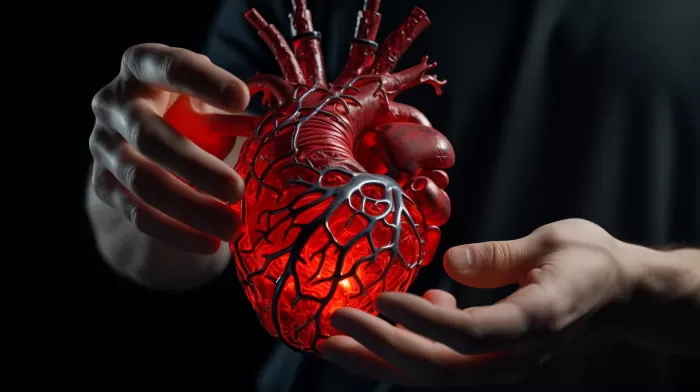Osteoporosis weakens your bones, making them more susceptible to fractures, but did you know it could also be an indication of stiffening arteries and a higher risk of heart disease? A study published in the Journal of Bone and Mineral Research found that individuals with lower bone density have worse cardiovascular health and higher risks of dying from ischemic heart disease.
So why are brittle bones linked to poor heart health? You may think it’s due to shared risk factors, like older age, smoking, and a sedentary lifestyle. However, the connection remains even after taking these factors into account. Scientists suspect that vascular calcification and bone mineralization share many overlapping processes in the body, with the cause being due to various complex factors that differ between men and women.
To protect your bones and heart, try adopting the following habits:
- Eat a balanced diet, such as the Mediterranean diet, to ensure you get plenty of bone-supporting nutrients, including calcium, magnesium, and vitamin D.
-
Get enough vitamin K2. This nutrient has been linked to inhibiting arterial calcification and stiffness, as it activates a protein that prevents calcium deposits on vessel walls and helps direct calcium to the bones, where it is beneficial.
-
Take a probiotic supplement, which can improve gut health and bone health simultaneously. A double-blind, randomized study found that the probiotic strain Lactobacillus reuteri 6475 helped older women reduce their bone loss by half.
-
Exercise regularly, as it is a reliable method for preventing osteoporosis and stimulating new bone growth as you age. Studies show that weightlifting exercises and jumping workouts can improve bone density and increase bone mass in just six months.
Incorporating these habits into your lifestyle can not only help prevent osteoporosis but also reduce your risk of heart disease. Keep your bones and heart healthy by prioritizing a balanced diet, adequate vitamin K2 intake, probiotic supplements, and regular exercise.



